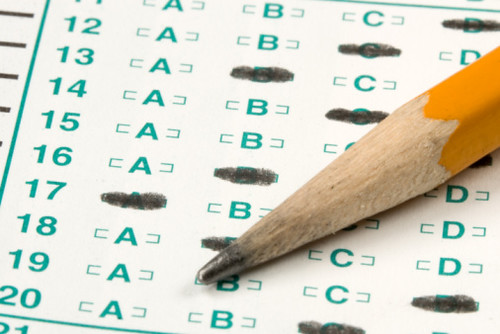 |
| Image by wecometolearn [CC BY 2.0] |
I'm thinking about how teachers write tests, and how we administer tests. I wonder if many students' anxieties about writing a test stem from previous bad experiences. And I wonder if there are ways we can improve testing.
There was a time in my own teaching practice when I tried to minimize the importance of tests and quizzes in favor of projects and more authentic work. In fact, my last year as a middle school science teacher, I gave very few traditional "tests." I still assessed students' work; I probably did more assessment that year than any other time in my teaching career, but it was mostly smaller, shorter, more frequent writing assignments. They were still "off the top of your head" assessments--not open book quizzes--but they weren't as integrative and comprehensive either.
I've come back to giving bigger tests again. Part of that might be that I'm teaching college students now, rather than middle schoolers, and so the expectations of academic rigor are higher. (As they probably should be.) And, at least part of it is that I am finding value in having students synthesize things for themselves in a just-in-time setting--not just regurgitate small-scale facts.
That said, I think there are things teachers can do to improve the way we give tests.
For example, when discussing tests, a student once offered, "A lot of the time, it seems like teachers are trying to find out what we don't know on a test, rather than what we actually do know."
Yikes.
I decided my student was right--how often are multiple choice or true-or-false? questions design to try and trick the students into picking a wrong answer? While I do still ask students these more objective kinds of questions, I also encourage them to justify their answers--I want to know what they know, not what they don't know! If the problem is in how I phrased the question, I just want them to explain their thinking: why did you pick the answer you chose?
Also, I'm still a bigger fan of student-constructed responses in writing, because I think they give students better opportunities to synthesize what they have learned. I've taken to regularly asking what some students have deemed "opinion questions." I have no problem with students sharing their opinions, so long as they are reasoned opinions, based on the ideas that we have been reading, discussing, and arguing about in class. All educated people should have opinions, in my thinking, and I want to encourage my students to develop their ability to compose a cogent argument "off the top of their heads."
What do you think? What ideas do you have for improving the way we test students?
No comments:
Post a Comment